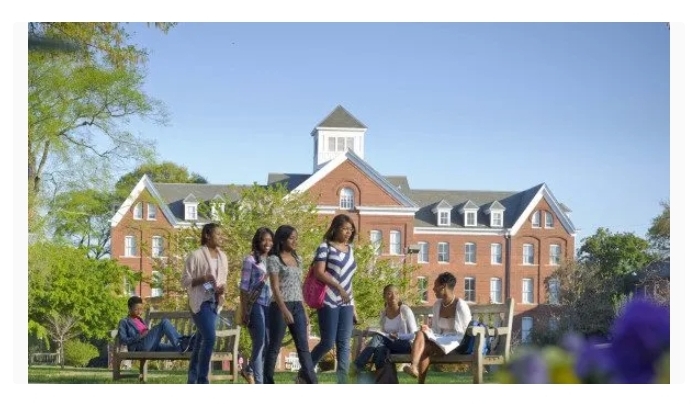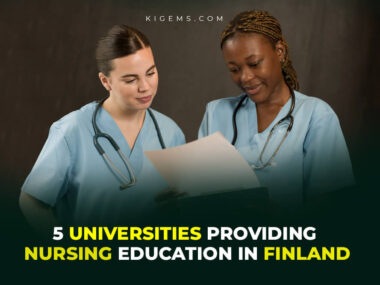The United Kingdom, with its world renowned universities, rich cultural heritage, and diverse opportunities, is a top destination for families seeking to relocate for educational and professional growth. For those planning to move in 2025/2026, pursuing university programs with scholarships offers a strategic pathway to secure a student visa and settle in the UK with dependents. Starting studies in January or September 2026, families can leverage these opportunities to build a new life while accessing quality education, universal healthcare, and vibrant communities. As a scholarship and opportunity-focused blogger at kigems.com, I’m excited to provide a comprehensive guide for international families aiming to relocate to the UK through university programs and scholarships. This article draws on up-to-date information, including insights from the UK government’s visa resources, to detail eligibility, benefits, application processes, and practical steps for a successful move. As of 12:21 PM WAT on August 19, 2025, application cycles for 2026 intakes are open, start planning now to meet deadlines and visa requirements.
Why Relocate to the UK Through University Programs?
Pursuing higher education in the UK is an appealing route for families due to its academic excellence and flexible immigration policies. The UK hosts iconic institutions like Oxford, Cambridge, and Imperial College London, alongside over 150 universities offering diverse programs. For families, the Student Visa and Graduate Route provide pathways to study, work, and potentially settle long-term. Key reasons to choose this route include:
World Class Education: UK degrees are globally recognized, with undergraduate programs typically lasting three years (four in Scotland) and master’s programs one year, ideal for focused study.
Family Friendly Visas: The Student Visa allows dependents (spouses and children under 18) to join the primary applicant, enabling families to relocate together.
Post-Study Work Opportunities: The Graduate Route permits international students to stay in the UK for two years (three for PhD graduates) after completing their degree to seek employment, offering a bridge to long-term residency.
Access to Services: Families benefit from the National Health Service (NHS), funded through taxation, and state schools for children, supported by the UK’s robust education system.
Cultural and Economic Opportunities: The UK’s multicultural cities, strong economy, and global job market in sectors like tech, healthcare, and finance make it an attractive destination.
Relocating through university programs allows families to combine education with a stable, enriching life in the UK, supported by scholarships that reduce financial burdens.
Understanding the UK Academic Intakes for 2026
UK universities typically offer two main intakes for international students:
September/October 2025 (Fall Intake): The primary intake, with most programs available. Applications generally open in February 2025 and close by May or June 2025 for September 2026 entry.
January/February 2026 (Winter Intake): A secondary intake for select programs, ideal for those needing extra preparation time. Applications often open in mid-2025 and close by October or November 2025.
Some universities, like Coventry or Brunel, offer a May 2026 (Summer Intake) for specific courses, but this is less common. For family relocation, the September or January intakes are preferable due to their alignment with academic and visa timelines, ensuring smoother transitions for children’s schooling.
Eligibility for University Programs and Student Visas
To relocate to the UK through university programs, the primary applicant (the student) must meet specific criteria, with provisions for dependents:
Primary Applicant (Student):
Be 16 or older.
Secure a place at a UK institution with a valid sponsor license (check via GOV.UK).
Receive a Confirmation of Acceptance for Studies (CAS) from the university.
Prove English language proficiency (e.g., IELTS, TOEFL, or equivalent, unless from an English-speaking country).
Show sufficient funds to cover tuition (after scholarships) and living costs (approximately £1,334/month in London, £1,023/month elsewhere for the student, plus additional for dependents).
Pay the Immigration Health Surcharge (IHS), currently £1,035/year per person, for NHS access.
Dependents (Spouse/Partner and Children):
Eligible dependents include a spouse, civil partner, or unmarried partner (with proof of a two-year relationship) and children under 18.
Must provide proof of relationship (e.g., marriage certificate, birth certificates).
Require additional funds (e.g., £845/month for a dependent in London, £680/month elsewhere, for up to nine months).
Dependents can work (with restrictions for spouses) and access state schools for children aged 4–16.
For January or September 2026 entry, start researching universities and programs by August 2025 to align with application and visa timelines.
Key Scholarships for International Students in 2025/2026
Scholarships significantly reduce the financial burden of studying in the UK, making relocation feasible for families. Below are prominent scholarships open to international students for 2026 intakes, focusing on those allowing family accompaniment:
Chevening Scholarship:
Overview: Fully funded by the UK government, Chevening supports outstanding professionals for one-year master’s degrees at any UK university.
Eligibility: Open to citizens of Chevening-eligible countries (e.g., Nigeria, India, China), with a bachelor’s degree, two years of work experience, and leadership potential. Applicants must return to their home country for two years post-study.
Benefits: Covers full tuition, monthly stipend, airfare, visa costs, and allowances for dependents.
Application: Open August 5 October 7, 2025, for September 2026 entry. Apply via the Chevening website.
Note: Ideal for families, as the stipend supports dependent costs, but early application is critical due to competitiveness.
Commonwealth Scholarship:
Overview: Funded by the UK government, this supports students from Commonwealth countries for master’s or PhD programs, focusing on development impact.
Eligibility: Open to citizens of eligible Commonwealth nations (e.g., Kenya, Pakistan, Bangladesh), with a strong academic record and commitment to national development.
Benefits: Covers tuition, living expenses, airfare, and family allowances for dependents.
Application: Typically opens in September 2025 for September 2026 entry. Check the Commonwealth Scholarship Commission website for deadlines.
Note: Suitable for families relocating for longer programs, with generous support for dependents.
University Specific Scholarships:
University of Oxford Skoll Scholarship: For MBA students at Saïd Business School, focusing on social entrepreneurship. Covers tuition and living stipends for the student, with dependents eligible to join. Deadline: January 7, 2026. Open to all nationalities.
University of Edinburgh Global Online Learning Masters Scholarship: For online master’s programs, ideal for families planning to relocate later. Covers partial tuition for 12 students from low income countries. Deadline: Early 2026 (check university website).
University of Manchester Global Futures Scholarship: Offers £300,000 in awards for undergraduate and master’s students from select countries (e.g., Nigeria, India). Partial tuition coverage; dependents can join. Deadline: Varies by program, typically spring 2026.
These scholarships align with January or September 2026 intakes and support family relocation through visa provisions and financial aid. Always verify eligibility and deadlines on university or scholarship websites.
Benefits of Relocating Through University Programs
Relocating via university programs offers families:
Stable Immigration Pathway: The Student Visa allows families to live together, with dependents accessing work (spouses) or education (children).
Financial Relief: Scholarships cover tuition and living costs, reducing the burden of high UK expenses (£4,000–£4,500/month for a family of four, including rent).
Post-Study Opportunities: The Graduate Route enables students to stay post-graduation, seeking work that could lead to Skilled Worker visas for permanent residency.
Quality of Life: Access to NHS healthcare, state schools, and multicultural communities in cities like London, Manchester, or Edinburgh.
Cultural Enrichment: Exposure to the UK’s history, arts, and diverse society enhances family experiences.
Application Process for University Programs and Visas
Research Universities and Programs:
Use UCAS (for undergraduates) or university websites (for postgraduates) to find programs for January or September 2026. Popular choices include medicine, engineering, business, and social sciences.
Confirm the institution has a sponsor license and offers a CAS.
Apply for Scholarships:
Submit applications for Chevening, Commonwealth, or university specific scholarships by their respective deadlines (e.g., October 7, 2025, for Chevening).
Prepare documents: academic transcripts, recommendation letters, personal statement, and proof of work experience (if required).
Secure Admission:
Apply through UCAS (undergraduates) by January 2026 or directly to universities (postgraduates) by spring/summer 2025 for September 2026, or fall 2025 for January 2026.
Receive a CAS upon acceptance, typically issued 3–6 months before the course starts.
Apply for Student Visa:
Submit an online application via GOV.UK at least six months before your course (e.g., by July 2025 for January 2026).
Provide: CAS, passport, proof of funds, English proficiency results, IHS payment, and dependent documents (marriage/birth certificates).
Book a biometric appointment at a visa application center.
Apply for Dependent Visas:
Dependents apply simultaneously or after the primary applicant’s visa approval, using the same portal.
Submit proof of relationship and additional funds.
Prepare for Relocation:
Arrange housing (university accommodations or private rentals via Rightmove/Zoopla).
Research state schools for children via local councils, ensuring applications align with the academic year (September to July).
Open a UK bank account (e.g., HSBC, Barclays) for financial management.
Costs and Financial Planning
Tuition Fees: Vary by program (£10,000 – £40,000/year). Scholarships often cover full or partial costs.
Living Costs: £4,000–£4,500/month for a family of four, higher in London. Scholarships like Chevening provide stipends to offset this.
IHS: £1,035/year per person (e.g., £4,140 for a family of four for one year).
Visa Fees: Approximately £490 per person, plus biometric costs.
Moving Costs: $2,000–$5,000 for shipping belongings, per move.org. Use relocation services like Sirelo for efficiency.
Budget for initial expenses (e.g., deposits, flights) and consider part-time work for spouses (20 hours/week) to supplement income.
Practical Steps for Family Relocation
Start Early: Begin researching universities and scholarships by August 2025 to meet 2026 intake deadlines.
Secure Housing: Opt for university family accommodations or short term rentals (Airbnb) before long term leases.
Enroll Children in Schools: Apply for state schools via local councils, targeting schools within a 1.6–3.2 km radius. International schools are an option for temporary stays.
Plan Visas: Apply six months in advance, using the CAS and ensuring all documents are complete.
Budget Wisely: Leverage scholarships and book flights/accommodations early to reduce costs.
Integrate Culturally: Join expat communities via InterNations or university societies to ease the transition.
Challenges and Considerations
Visa Delays: Processing can take 6–12 weeks; apply early and double-check documents.
High Costs: Even with scholarships, living expenses are significant. Plan for unexpected costs with savings or insurance.
School Placement: State school availability depends on catchment areas; apply early to secure spots.
Post-Study Transition: The Graduate Route requires proactive job searching to transition to work visas.
Ethically, provide accurate information in applications to avoid rejection. Secure travel insurance for unforeseen disruptions.
Success Stories
Families Thriving in the UK
Fatima, a Nigerian mother, relocated with her family to the UK in 2024 via a Chevening Scholarship for a master’s at the University of Manchester. The stipend covered living costs for her husband and two children, who attended a local state school. Post-graduation, Fatima secured a job, transitioning to a Skilled Worker visa.
Similarly, Raj, an Indian engineer, moved with his family to Edinburgh in 2023 on a university scholarship. His wife worked part-time, and their daughter thrived in a state school. Raj’s Graduate Route led to a tech job, paving the way for indefinite leave to remain. These stories, shared on kigems.com, highlight the potential for success.
Future Outlook for UK Relocation
The UK’s immigration policies may evolve by 2026, with potential increases in minimum income thresholds for sponsors (e.g., £38,700).
Scholarships like Chevening and Commonwealth are expected to remain robust, supporting family relocation. Monitor GOV.UK for updates.
Practical Advice for Families
Plan Ahead: Start applications by August 2025 for scholarships and visas.
Research Thoroughly: Use UCAS, university websites, and kigems.com for guidance.
Document Carefully: Ensure all visa and scholarship documents are accurate.
Engage Locally: Connect with university support teams and expat networks for integration.
Budget Strategically: Use scholarships and early bookings to manage costs.
Stay Updated: Check scholarship and visa portals for deadline changes.
Conclusion
Build Your Family’s Future in the UK
Relocating to the UK in 2025/2026 through university programs and scholarships offers families a pathway to academic excellence, career growth, and a high quality of life. By securing scholarships like Chevening or Commonwealth, navigating the Student Visa process, and planning diligently, you can establish a rewarding life in the UK. Start your journey today to meet January or September 2026 deadlines.
For more details and to apply, visit the UK government’s visa portal: https://www.gov.uk/student-visa.






